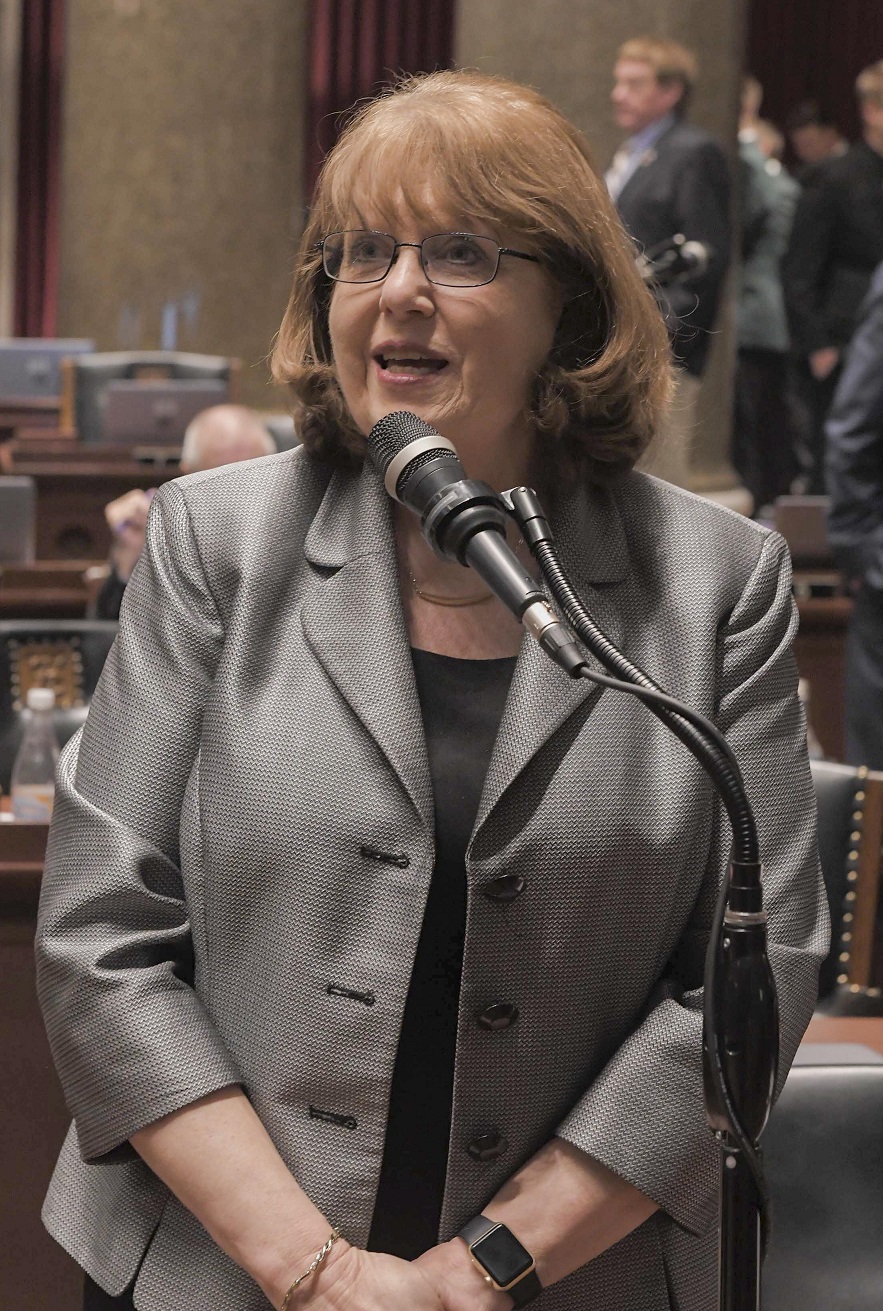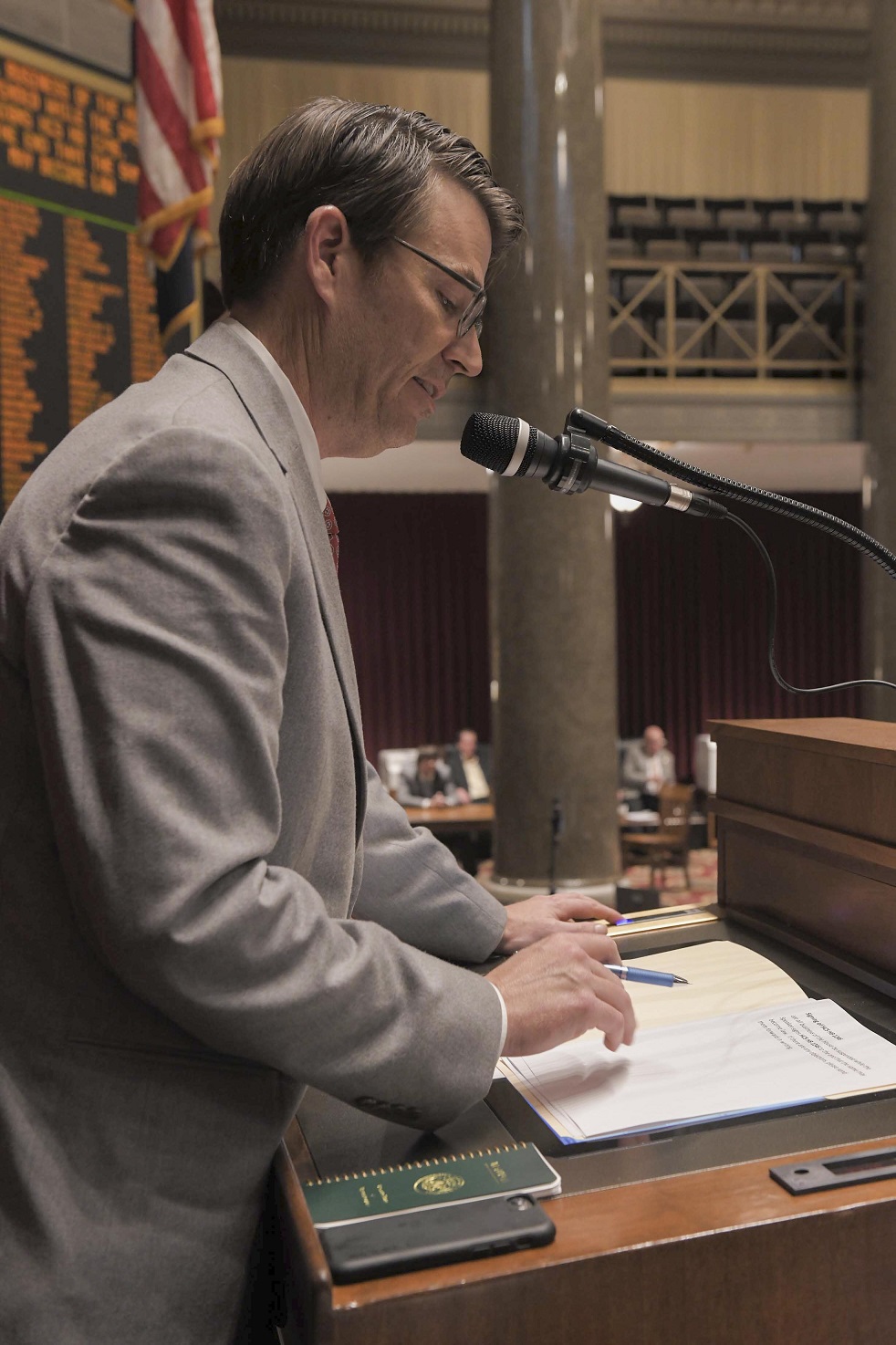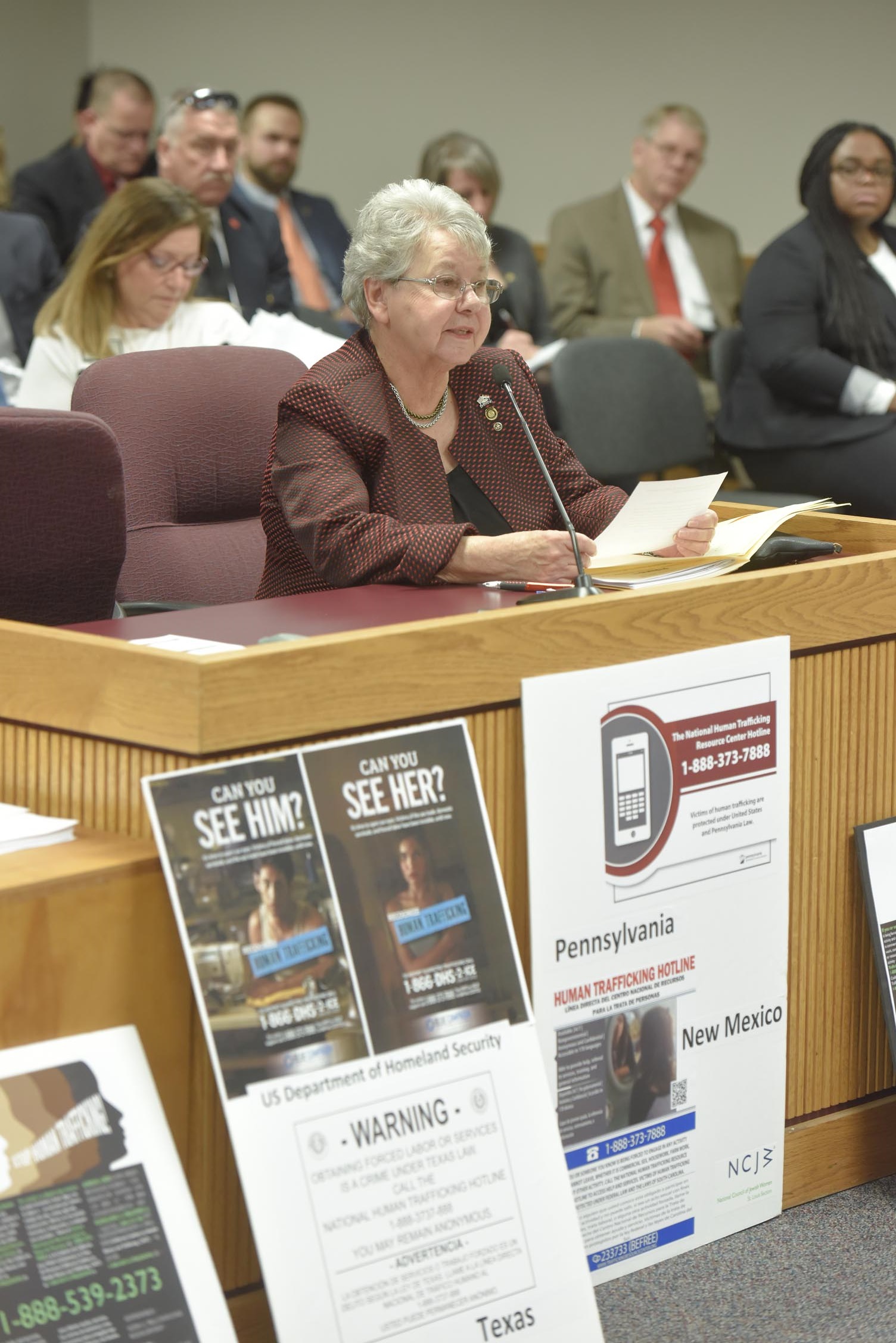Missouri House members have taken time this session to honor one of their own.
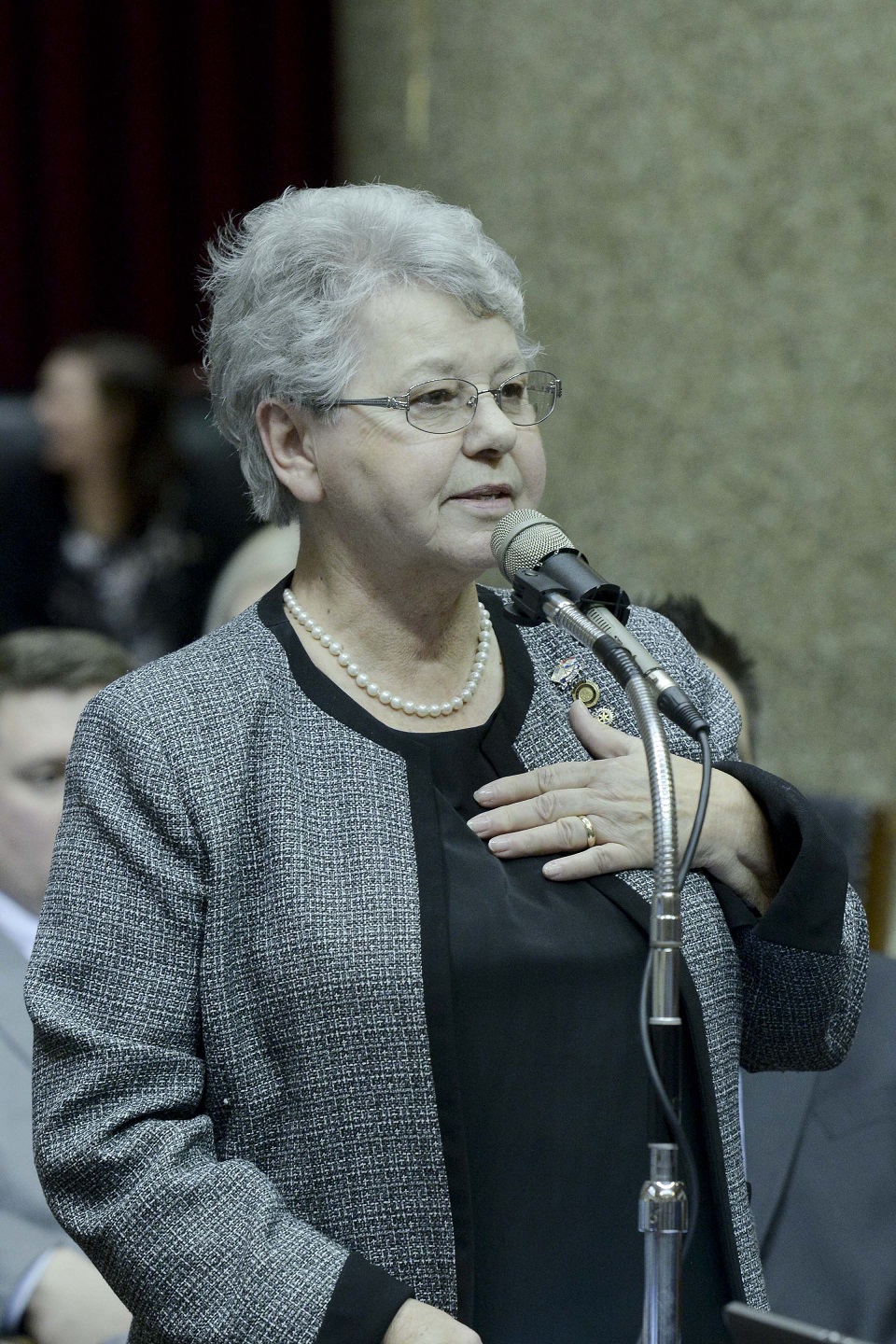
The House and Senate agreed on House Bills 448 & 206, to rename a portion of U.S. 61/67/50/Lindbergh Boulevard in St. Louis County the “Rep. Cloria Brown Memorial Highway.” Brown was a state representative representing part of south St. Louis County for more than five years. She died in March of last year after a battle with cancer.
That legislation was signed into law today by Governor Mike Parson (R), who was accompanied by Brown’s family and some of her colleagues, and in front of around 100 legislators.
Parson said it was significant that so many lawmakers stepped away to witness the signing while the busy legislative session is still underway.
“This says a lot for Cloria … who she was,” said Parson. “What she accomplished, the goals she had in mind, with the representation she made of her family that are here today, and a representation of you – of all of us that work in this building when you have people like that come along sometimes and show us all that there’s a higher road to take.”
Brown has been remembered by colleagues and even political rivals as hard working, tough, and compassionate. She worked on the House’s budget committee; proposed a ban on texting while driving; and backed measures aimed at fighting human and sex trafficking.
In 2017 Brown sponsored a bill to require the development and display in certain workplaces of posters with the Human Trafficking Hotline. The posters’ aim is to provide information on how victims can be helped and how to fight trafficking. A similar bill, House Bill 1246, became law last year, with Brown considered one of the driving forces behinds its passage. It was sponsored by Representative Patricia Pike (R-Adrian).
“Cloria Brown was a joy to so many people; her family, her friends, the legislators, and the citizens. We loved her smile, we loved her very defined work ethic,” said Pike. “As a state representative she served with grace and she served with commitment.”
Earlier story: Missouri legislature approves human trafficking hotline posters
Brown also co-sponsored House Bill 1562 in 2016, which expanded Missouri’s law against sex trafficking to include advertising a child participating in a commercial sexual act. That bill was sponsored by current House Speaker Elijah Haahr (R-Springfield).
Earlier story: Missouri toughens laws against human trafficking, sponsor says more to come
Representative Jim Murphy (R-St. Louis) now represents what was Brown’s district. He also knew her personally.
“Cloria, your legacy inspired us not to sit idly by, but to continue to stand up for those who have no voice,” said Murphy.
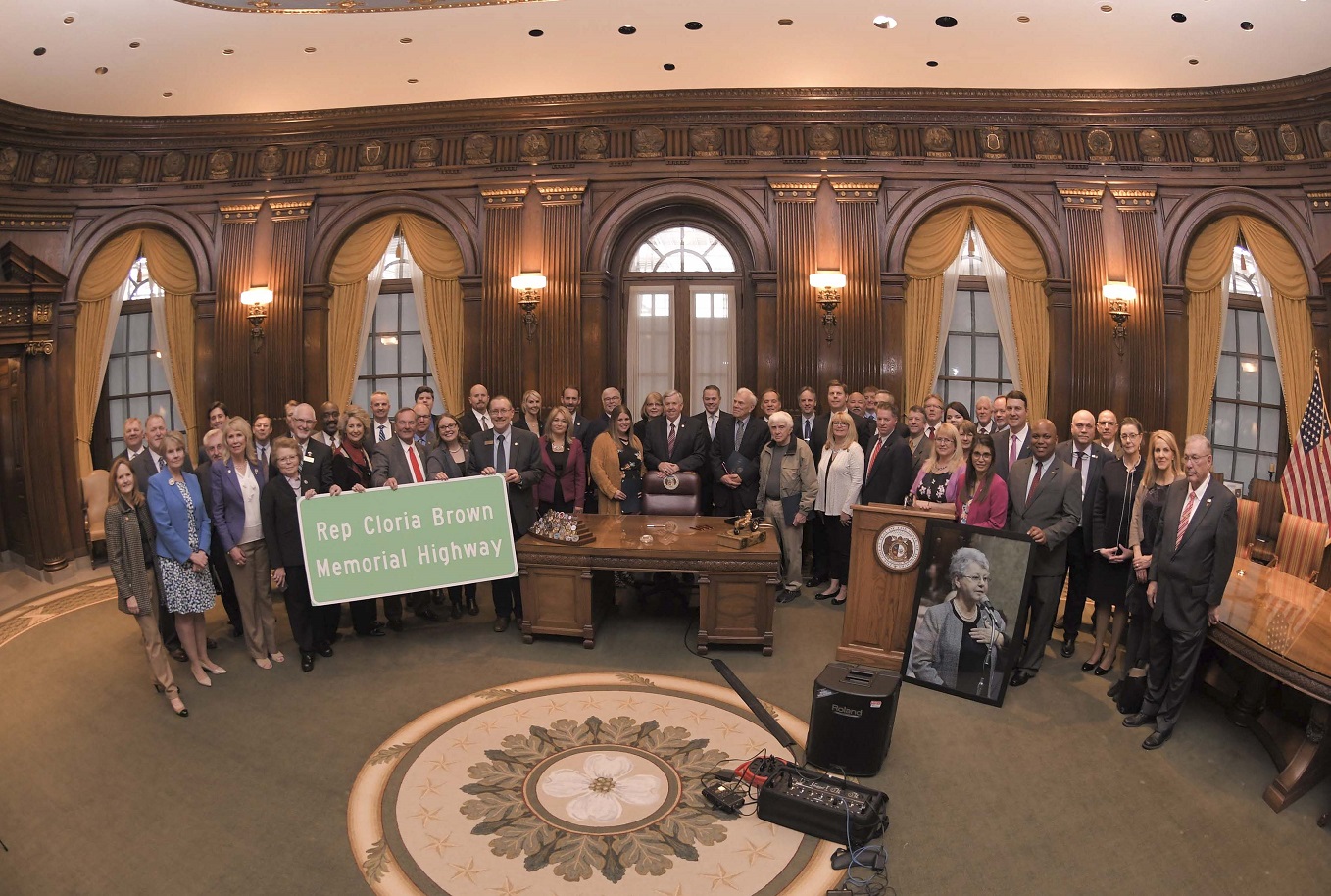
Scott Sifton’s (D-Affton) Senate district overlaps the district Brown represented, and they served together in the House. He praised Brown for representing the refugee population in her district.
“For anybody that knows south St. Louis County, it is an area that demands a lot of accountability and attention from its elected leadership. Folks there take things very seriously,” said Sifton. “What that results in, and really demands, is a lot of hard work and close connection of the people that represent that area to the constituents they serve, and nobody exemplified that better, in the time that I have been involved, than Cloria Brown.”
Brown was buried in St. John’s Cemetery, which overlooks Lindbergh Boulevard, a portion of which will now be named for her.
The sign designating that section of road in her name will be paid for by private donations.
